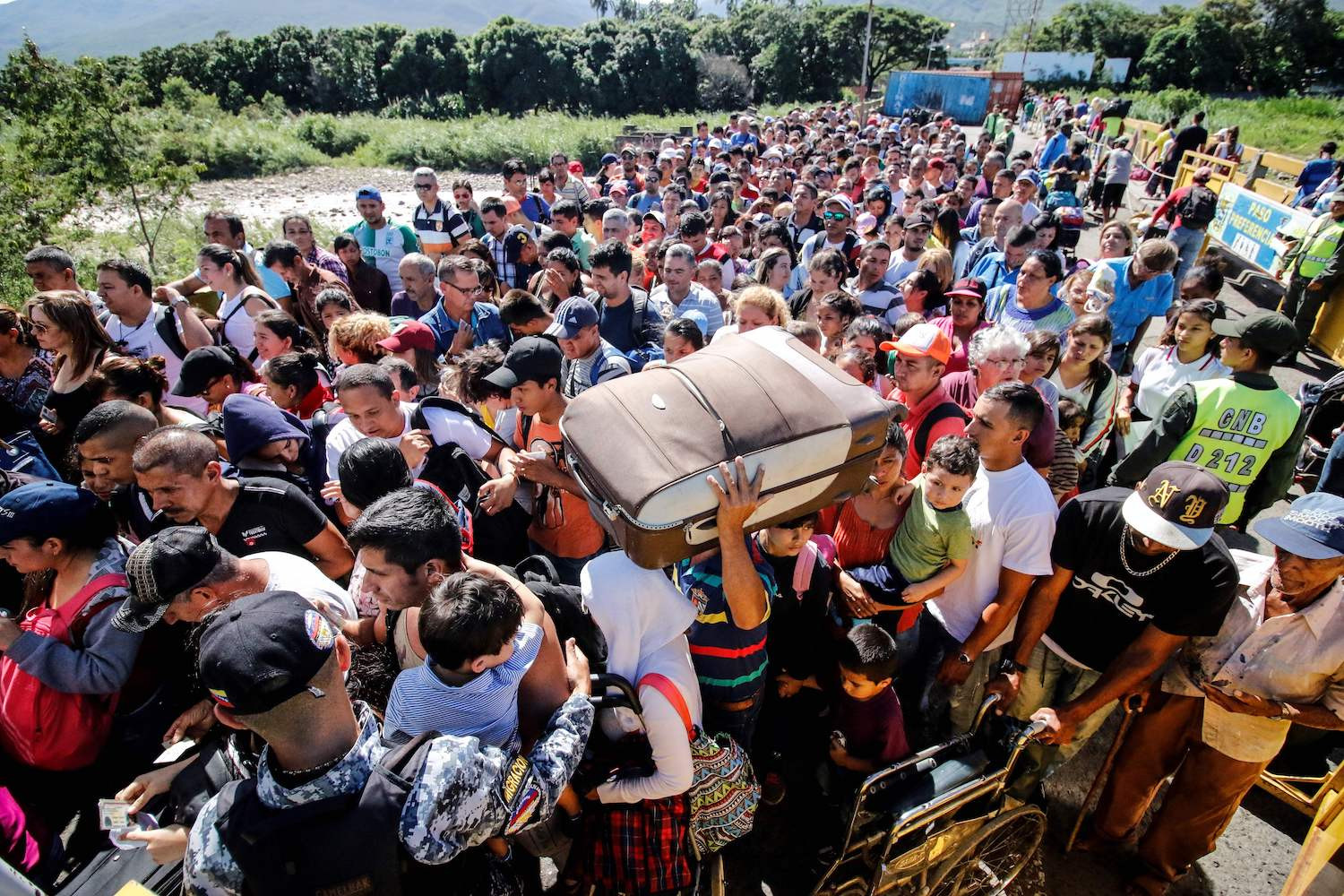While they had once been promised a bright postcolonial future of justice and equality, millions of Venezuelan have instead seen a revival of past violences and have witnessed the shattering of their families. At the root of the Venezuelan diaspora is a self-proclaimed anti-imperialist regime’s failure to recognize its own settler-colonial realities. It is possible to spend decades debating the political theories and ethics behind the current humanitarian crises, but in the meanwhile, individuals are living through the real and tangible implications. Therefore, it is important to understand that decolonization should never become a metaphor as promises are being broken and families are being shattered.
As one of his final acts in office, former United States President Donald Trump granted deportation protections to “illegalized” Venezuelan immigrants through the Deferred Enforced Departure program, providing refuge to an estimated total of 94,000 Venezuelans. Yet this is a rather small bandage for the realities exhibited by the Venezuelan Diaspora. According to The New Humanitarian, this constitutes one of history’s fastest growing diasporas with an approximate 4.5 million Venezuelans having fled their native state since 2015. It should be noted that there are many emigrants who left before 2015 that are not reflected in this figure.
While the experiences of these arrivals across the globe is a crucial narrative of its own, it is equally pivotal to unpack the social and political histories that have led Venezuela to its current state, particularly in regards to the Bolivarian Revolution. Many have designated the Venezuelan Diaspora as a product of the human rights violations and economic conditions under the Bolivarian regime, but few have espoused a people-centered approach to critically challenge the Chavista ideologies that gave rise to this oppressive authoritarian regime in the first place.
The Venezuelan Diaspora is a direct consequence of the strenuous living conditions conceived by the authoritarian Bolivarian Regime. There are numerous oppressive perpetrations enacted by this regime, and the Venezuelan human rights advocacy group Hearts On Venezuela clearly outlines some of these conditions. For one, Venezuela is plagued with human rights violations. In 2020, Venezuela had over 11,000 violent deaths, and since 2014, there has been a sum of over 18,000 extrajudicial executions. In regards to economic disjunctures, Venezuela has an inflation rate of 3,713%, which is the highest in the world, and has a minimum monthly wage of less than $1 USD, which is 98% below what the United Nations considers as the extreme poverty threshold. In addition to the human rights violations and economic scarcity, most Venezuelans are also forced to face a completely collapsed healthcare and public utilities system on which their communities depend. As these lived realities continue to be brought to the surface, it is just as important to understand the disparities between the promises made by the Bolivarian Revolution and the conditions empowered by the Bolivarian Regime.
While the Bolivarian regime has proven itself detrimental to the livelihoods of millions, its original aspiration through the Bolivarian Revolution was to allegedly eradicate inequalities and poverty, specifically those produced by imperialist and neo-colonial structures. Before the rise of Hugo Chavez and the Bolivarian Revolution, former Venezuelan President Carlos Perez engaged in neo-liberal collaborations with the International Monetary Fund that exacerbated pre-existing inequalities from colonialism as well as the neo-colonial rise of the oil industry. The amplified social stratification brewed tensions that would then serve Chavez’s populist movement that pillared itself on undoing oppressive colonial inequalities and oppressive structures.
The irony of the revolutionary Chavista regime lies in how it reproduces many of the oppressive colonial structures it sought to eradicate in the first place. For instance, patriotism is a key feature of Chavismo, aspiring to amplify Venezuelan nationalistic sentiment. However, this nationalism directly contradicts the anti-colonial position of the Revolution by further materializing Venezuela as a settler-colonial state. It appears that Chavismo rejects U.S. and European colonialism but completely erases its own settler-colonial nature. In comparison to many other countries, the Bolivarian Revolution’s Venezuelan Constitution of 1999 extends relatively progressive rights to Indigenous communities and aspired to integrate their nations into the state’s political process, but it continues to force Indigenous nations to negotiate their rightful sovereignty within a settler-colonial structure. Furthermore, Chavismo has structured many of its welfare programs to be funded by the same extractive oil economic activity that historically led to much of the state’s inequality in the first place. The environmental degradation that was expected to financially uphold these welfare programs strictly violates the environmental rights guaranteed by the Venezuelan Constitution of 1999 ratified under the Bolivarian regime. While many of the humanitarian initiatives supported by the Bolivarian Revolution are promising, that should not take away from a critical stance against the violence enacted by the Bolivarian regime, especially since the regime’s practice often neglects the revolution’s expectations.
Despite having much of this discussion occur under theoretical planes of political morality, it is imperative to recognize the tangible effects Chavismo’s failure has on an individual’s lived experiences, especially Black and Indigenous people. As Venezuelans battle against this authoritarian regime that loudly claims (but fails) to practice progressive ideologies, it is important to avoid right-wing radicalization as has been observed historically when states transition away from failed socialist regimes. In order to avoid this radicalization, it is critical that individuals understand the inherent goodness of many of the Bolivarian Revolution’s humanitarian-centered promises as separate from the evils exerted by the Bolivarian regime, highlighting the dissonance between the two. It is also as equally as important to deconstruct the good versus evil dichotomy when reflecting upon the lessons taught by history. In general, as political regimes, systems, and institutions evolve over time, it is important to not lose sight of what truly matters — the people.
Image Credit: “Venezuelans line up to cross into Cúcuta, Colombia, on June 8.” by SCHNEYDER MENDOZA/AFP/GETTY IMAGES is licensed under CC BY 2.0.



